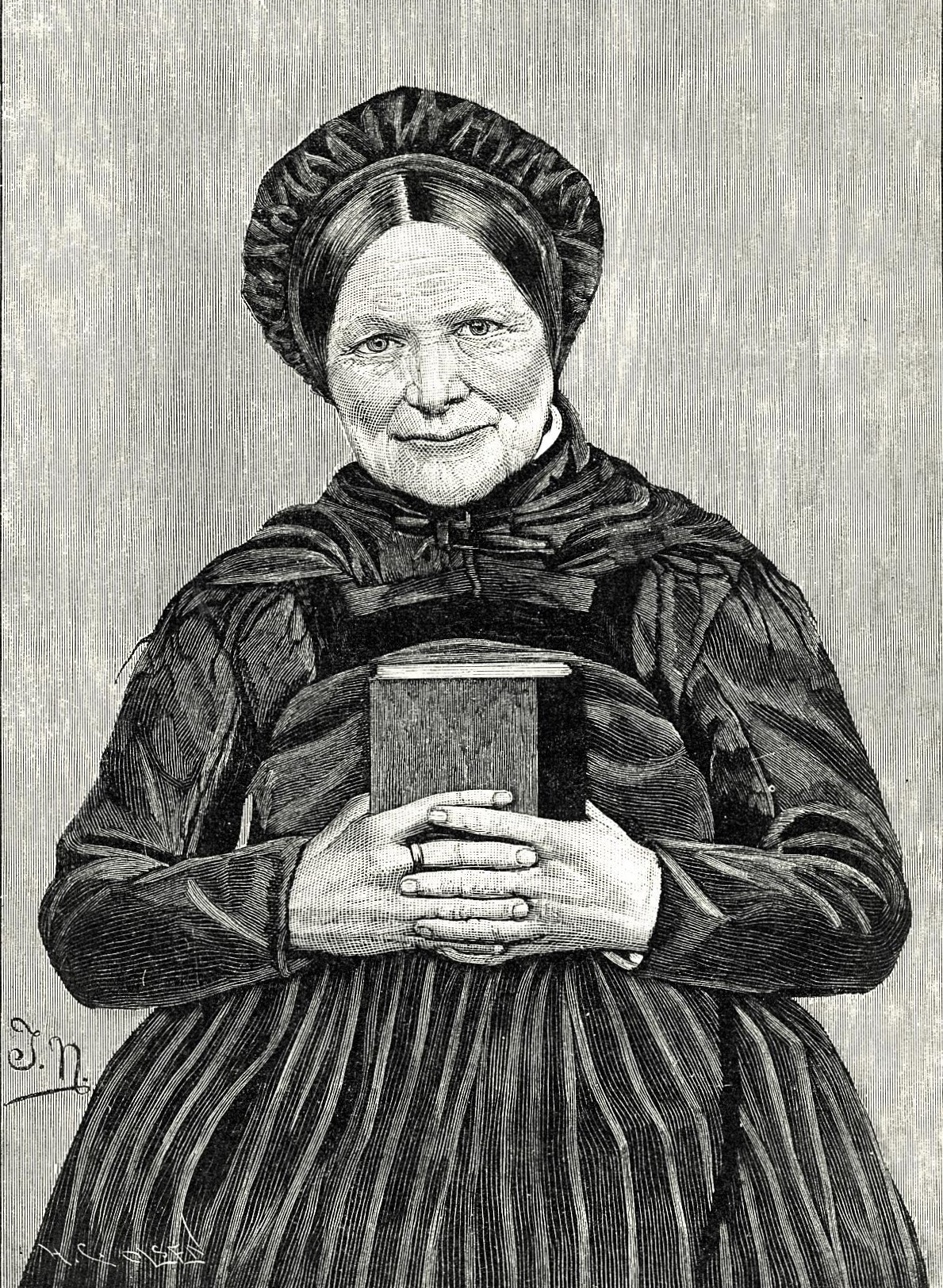Aarflot, Berte Kanutte (1795 - 1859)
Last edited by Marie_Sorbo on June 15, 2025, 12:26 p.m.
| Short name | Aarflot, Berte Kanutte |
|---|---|
| VIAF | http://viaf.org/viaf/229571935/ |
| First name | Berte Kanutte |
| Birth name | Aarflot |
| Married name | Aarflot |
| Date of birth | 1795 |
| Date of death | 1859 |
| Flourishing | - |
| Sex | Female |
| Place of birth | Volda |
| Place of death | Ørsta |
| Lived in | Ørsta , Volda , Norway |
| Place of residence notes |
| Mother | |
|---|---|
| Father | |
| Children | |
| Religion / ideology | Protestant |
| Education | School education |
| Aristocratic title | - |
| Professional or ecclesiastical title | - |
| Aarflot, Amund Knutsson Hovdenakk | 1816-1859 | Married |
| Profession(s) | Poet |
|---|---|
| Memberships | |
| Place(s) of Residence | Ørsta , Volda , Norway |
Author of
Editor of
-Copyist of
-Illustrator of
-Translator of
-Circulations of Aarflot, Berte Kanutte, the person (for circulations of her works, see under each individual Work)
| Title | Date | Type |
Receptions of Aarflot, Berte Kanutte, the person
For receptions of her works, see under each individual Work.
| Title | Author | Date | Type |
|---|---|---|---|
| Berte Kanutta Sivertsdatter Aarflot | Bjørnson, Bjørnstjerne | 1859 | is obituary of |
| Bertha Sivertsdotter Aarflot | Unknown journalist (to be identified) | 1867 | is biography of |
| Livsbilleder af kristelige Kvinder Life sketches of Christian women | Thygesen, Th. | 1875 | is biography of |
| Et trekløver fra Norges kirke: Livsbilleder av Gertrud Egede, Berte Kanutte Aarflot og Henriette Gislesen A trifolium of the Norwegian church: portraits of... | Winther Jakhelln Prytz, Anton Frederik | 1884 | is biography of |
| *Aarflot, Berthe Canutte | [unidentified author, multiple, separate records to be made] | 1885 | is biography of |
| Johan Nordhagen, portrait of Berte Kanutte Aarflot, after photo by H.C. Olsen | 1905 | is portrait of |
MENTIONED IN - J. B. Halvorsen's 1885 6-volume 'Norwegian Encyclopedia of Authors' ('Norsk forfatter-lexikon').
Went to primary school.
mnsoct10. MNSdec13
Poet, songwriter
Born on a farm in Volda, and worked hard all her life as a farmer's wife and mother of seven children. Her father was a well-known printer (Sivert Aarflot) who started the first rural newspaper in Norway in 1810. He encouraged his daughter's writing, and just before he died (1817) saw to it that her first collection of poems would be published (1820).
She wrote poetry and songs from an early age (12 or 13). Her dying father read and provided a title for her first collection. Her poems were emotionally intense, religious songs. Her intellectual background was partly formed by her father's Enlightenment ideas, and partly by the new religious awakening fronted by Hans Nielsen Hauge, which combined a low church emphasis on personal conversion with a new focus on the importance of reading and writing skills, not least for women. She was a very productive poet who composed her songs when working in the house or outdoors, and then wrote them down later when she could find the time, as reported by her son. She was popular among her neighbours for providing comforting poems in difficult situations, and her popularity spread to the rest of the country and beyond, as confirmed in the obituary written by the famous, male author Bjoernstjerne Bjoernson: "Her deeply religious songs are a treasure found in every farmer's house in the whole counties of Trondhjem and Bergen: they have also wandered further through the country and are even sung in the neighbouring countries. One dares claim that few in this country have contributed to religious growth in such a wide circle as she.' Her collections of poems were mostly read and not so often sung, and they were reprinted again and again in many copies. In the present day, the main building of Volda University College has been named after her.
